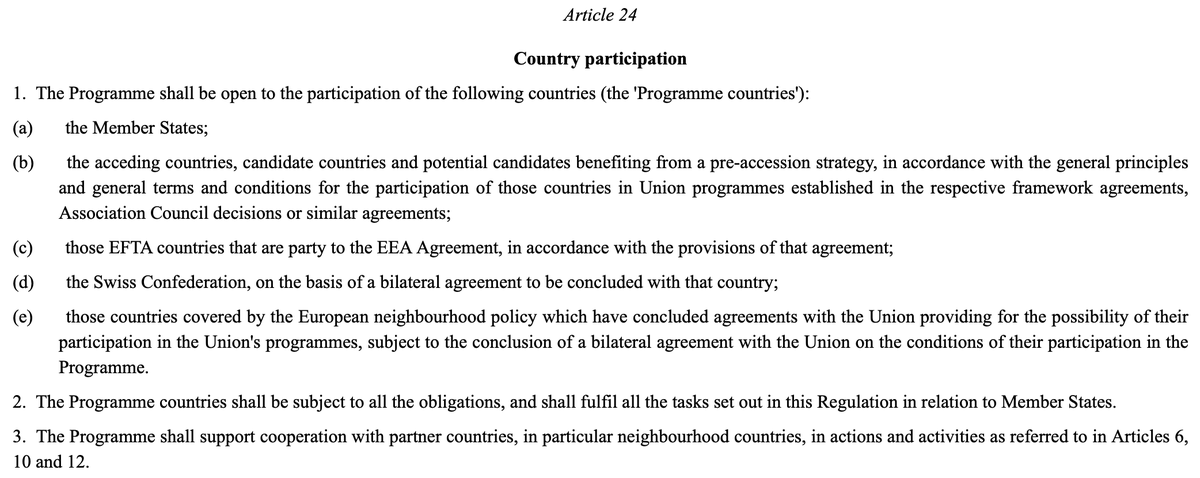Of course he is playing to the crowd, and blaming Brussels always works, even after leaving the EU. But this is an assertion without evidence. /1 reuters.com/article/uk-bri…
The UK became so used to seeking exceptions that it almost felt that whenever a treaty negotiation came up, the UK would have to object to something otherwise be accused of selling out. /2
The UK was the only country that was granted opt-outs to things it didn’t want (Schengen, euro etc) and had these written into the Treaty. /3
Not to mention the budget rebate agreed in the 1980s on funds. /4
That the UK blames the EU for waves of migration is woeful: the UK did not even seek to impose transitional measures on new Member States in 2004. And hardly holding the UK over a barrel of people wanted to make their home there. /5
It is difficult to imagine the lengths that the EU27 would go to in order to accommodate any other MS. Cameron’s renegotiation was always doomed because he wanted to opt out from some of the core principles, not merely the distinct areas (such as euro membership). /6
The UK decided to leave but assumed that the EU’s commercial interests would mean that it was treated with the same exceptionalism. (Oddly the commercial reasons for staying in the EU were ignored by Brexiters). /7
The presentation of ‘absolute’ sovereignty once leaving the EU is a misnomer, unless the UK does not want any international obligations at all. /8
And herein lies the Brexit paradox: the UK needs to leave the ‘failing’ EU, but then complains it is strong enough to impose its will on the UK and not hostage to its commercial interests. /9
Which means one thing: the EU and its Member States will be blamed for any and all Brexit effects, with ramped-up nationalism the fallback. This will poison relations across all other areas of potential cooperation. /END
• • •
Missing some Tweet in this thread? You can try to
force a refresh





